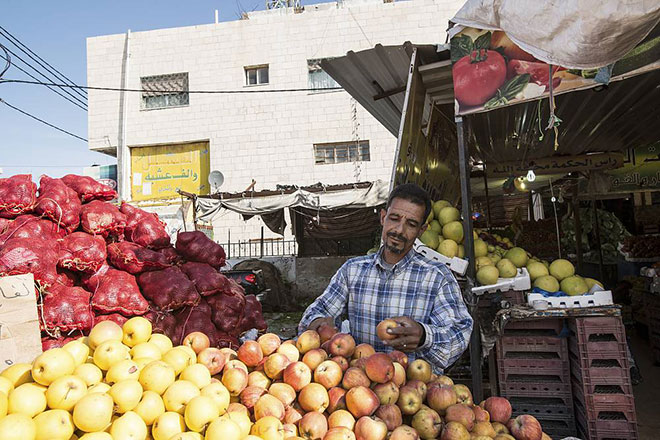Irbid (Jordan) is the next pilot city for a project on safeguarding intangible heritage in urban areas
 |
| Irbid, Jordan. Nadia Bseiso © ILO |
Over the past few years, UNESCO has been leading several initiatives to develop new strategies for integrating culture and creativity in urban contexts. Together with its partners, UNESCO promotes culture-engaged and people-centered urban development models. Urbanization plays a crucial factor in constructing and shaping the identity of a community. In some cases, the changes induced by the urbanization process have resulted in the loss or weakening of living heritage in certain groups and communities.
In this vein, the project ‘Intangible heritage and creativity for sustainable cities’ aims to promote the role of culture in sustainable urban development, and specifically addresses the role that living heritage and creativity can play in building sustainable cities. The Living Heritage Entity is implementing the first component of the project, which is titled ‘Community-based inventorying of intangible heritage in urban areas’. After George Town (Malaysia), Harare (Zimbabwe), Kingston (Jamaica), Ayacucho (Peru) and Tbilisi (Georgia), the pilot project in the city of Irbid (Jordan) is about to begin.
Due to its geographical location and the geopolitical context of the region, Irbid has a longstanding history of immigration. Palestinians, rural Jordanians, economic migrants and more recently Syrians have come to Irbid to live. This has resulted in the city’s diversity of culture and traditions.
As the sixth selected pilot city, Irbid joins the project ‘Community-based inventorying of intangible heritage in urban areas’. The facilitators will notably invite participant to identify living heritage practices, such as traditional crafts and performing arts, which are key to achieving the sustainable development of communities. The project will also look at the cultural practices of refugees who have been living within the city since 1948 by focusing on one of the Palestinian refugee camps in Jordan located in Irbid.
The project is implemented by UNESCO Living Heritage Entity in close collaboration with the UNESCO Amman Office, with the generous funding provided by Yong Xin Hua Yun Cultural Industrial Co.Ltd, China.
Address: 81, Laiguangying West Road, Chaoyang District, Beijing, China
Zip Code: 100021
Tel: 86-10-64966526
Fax: 86-10-64969281
E-mail: administration@crihap.cn
NEWSLETTER
Leave us your e-mail address, we'll let you know about current events.


